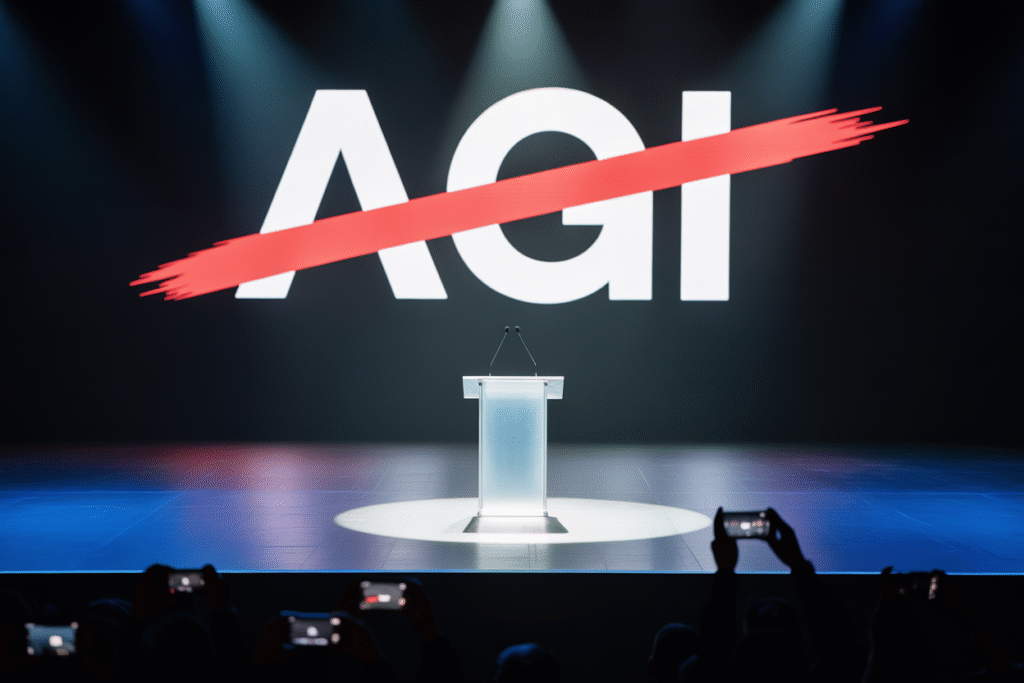OpenAI’s CEO just torched the term AGI. Is it brilliant clarity or a smoke screen?
Yesterday, Sam Altman dropped a verbal grenade on X: “AGI is a pointless term.” Within minutes, timelines lit up with hot takes, memes, and think-pieces. Why does one word carry so much weight, and what does this mean for the future of AI?
The Tweet Heard Round the World
At 11:47 GMT, Altman typed out a single sentence that shattered the echo chamber. “Artificial General Intelligence is a pointless term,” he wrote, adding that endless definitions make the label meaningless. The post rocketed past 50k views in under an hour. Comment threads split into two camps: those relieved the hype bubble might finally pop, and those furious that OpenAI’s own north star was being tossed aside. Altman’s timing felt deliberate — regulators are circling, investors are skittish, and the public is weary of sci-fi promises. One user replied, “So the goalposts weren’t moved — they were bulldozed.”
Why Definitions Matter in the AI Gold Rush
AGI has always been the magic phrase that unlocked billions in venture funding. Say it in a pitch deck and watch wallets open. But what does it actually mean? Ask ten researchers and you’ll get eleven answers. Some insist it’s human-level cognition across any task. Others demand emotional intelligence, creativity, even consciousness. Altman’s frustration is understandable — when the finish line keeps shifting, how do you measure progress? The irony is that OpenAI’s charter still pledges to build safe AGI that benefits all humanity. If the term is pointless, does the pledge evaporate too?
From Sci-Fi Milestone to Practical Tools
Altman hinted that the real win isn’t a mythical general mind but specialized systems that cure diseases, accelerate science, and turbocharge productivity. Picture AI chemists designing molecules overnight or AI tutors crafting lesson plans for every learning style. These tools don’t need to pass the Turing test — they just need to work. Investors are already pivoting. Funds once earmarked for moon-shot AGI labs are flowing into narrow, revenue-generating applications. The market loves certainty, and “we’ll cure cancer” sounds more bankable than “we’ll maybe build HAL 9000.”
The Hidden Risk of Killing the Buzzword
Strip away AGI and you also strip away urgency around safety research. If superintelligence is recast as a distant fairy tale, why fund alignment teams? Critics worry Altman’s pivot is a sleight of hand — downplay existential risk while racing ahead in secret. Meanwhile, ethicists fear a semantic vacuum. Without a shared definition, who holds developers accountable? Regulators drafting AI bills suddenly have no clear target. The stakes are enormous: one sloppy clause could either stifle innovation or green-light reckless deployment.
What Happens Next — and What You Can Do
The debate is far from over. Expect think tanks to scramble for a new yardstick — perhaps “economically useful AI” or “high-impact autonomous systems.” As the dust settles, three moves matter: 1) Demand transparency from AI labs about goals and safeguards. 2) Support open-source audits so the public isn’t left guessing. 3) Keep asking the awkward questions: Who benefits, who gets hurt, and who decides? Your voice in comment sections, town halls, and app-store reviews shapes the path forward. The future of AI isn’t written in code — it’s written in choices we make today.


